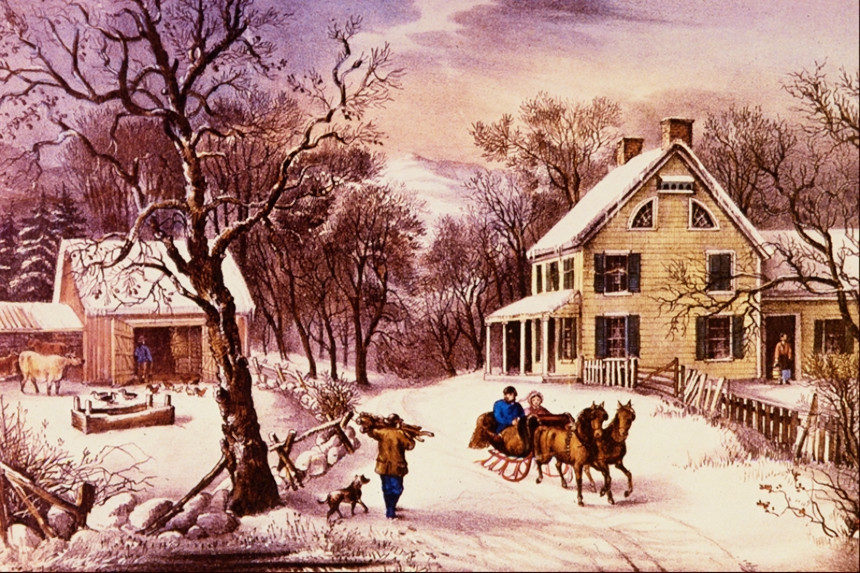This year it’s November 26th. It’s always a Thursday.
But not much else is the same this year.
The usual stories of the approach of Thanksgiving now thread through the latest statistics on the surge of COVID-19 cases and the concern of public health officials about the family gathering around the dining room table. The leaves put in to accommodate everyone are a threat to the health and wellbeing of everyone there and everyone they may come in contact with in the days to come.
And you can’t eat turkey through a mask.
So in the interests of good health and family safety, folks are being asked to stay home. Forego the family gathering. And the holiday that usually brings the largest number of travelers is a no go this year. Not just a health concern but federal interest. The CDC guideline may be heard on TV almost every hour on the hour.
The concerns over travel versus the wish to be with family came together for me when a friend took me for a COVID-19 test. On the way home I asked if she and her husband were going to Alabama for Christmas or Thanksgiving this year. She shook her head and said, “No.” And although it was but one word, it conveyed a wistfulness that’s first cousin to sadness.
Thinking about it that evening I remembered all the years that, come Thanksgiving morning, my parents and I would head off for Grandma and Grandpa Mann’s house in Ann Arbor, Michigan. And I’d start to hum, then sing: “Over the river and through the woods, to Grandmother’s house we go.”
It seems the proper name is “The New England Boys Song,” written by Lydia Maria Child, originally published in 1844, in Flowers for Children, Volume 2. And it’s wood, singular, not woods. And Grandfather’s house. (Who knew?)
Over the river, and through the wood,
To Grandfather’s house we go;
the horse knows the way to carry the sleigh
through the white and drifted snow.
Over the river, and through the wood,
to Grandfather’s house away!
We would not stop for doll or top,
for ‘tis Thanksgiving Day.
Over the river, and through the wood —
When Grandmother sees us come
She will say, “O, dear, the children are here,
bring a pie for everyone.”
Over the river, and through the wood —
now Grandmother’s cap I spy!
Hurrah for fun! is the pudding done?
Hurrah for the pumpkin pie!
Pumpkin pie was the traditional Thanksgiving dessert in my family. Today, a friend bakes me a pumpkin pie. But being 94, I’ve finally given up trying to manage any size turkey — lifting even a turkey breast in and out of the oven is a problem — so this year I’ve ordered from my local market a fully cooked turkey breast that only requires heat. It’s boneless, so not the usual shape — in fact, in the color photo it looks to be as round as the bologna in the deli case.
I’ve long made the traditional cranberry sauce — cook the berries in the sauce pan with LOTS of sugar. (They’re tart, to say the least; your mouth puckers up to a point you could whistle.) Or raw cranberries ground up with oranges and walnuts. Equally good.
Many years ago in the course of doing a story on Plimoth Plantation I learned that the Pilgrims had cranberries. They used them for dye. And, I was told, they called them Bounce Berries, because when they tested the ripeness by dropping them on the kitchen floor, the higher they bounced the riper they were.
A couple of years ago, in checking this with an expert at Plimoth Plantation, I was told the Pilgrims did not do that. (Better research, I guess.) But I like the Bounce Berries story, so pass it on.
Incidentally, this year marks the 400th anniversary of the Mayflower crossing the Atlantic, reaching the east coast, and eventually putting the Pilgrims ashore at Plymouth, Massachusetts on December 21, 1620. Whether they stepped out on the rock that is now covered by a Grecian structure is also suspect, but a nice bit of lore.
That fall, the Pilgrims celebrated the bounty they’d enjoyed with a harvest (to which they invited the Native Americans, who brought five freshly dressed deer) — the historical thread that links the Pilgrims to Thanksgiving. But it took many years, letters and petitions, and pleas to get Thanksgiving recognized as a national holiday. In 1789, George Washington issued the first Thanksgiving proclamation by the national government of the United States. John Adams and James Madison would also designate days of thanks during their presidencies. But we perhaps owe today’s national holiday to a woman named Sarah Josepha Hale, a magazine editor and writer (and author of the nursery rhyme “Mary Had a Little Lamb”). In 1827, she began a push that would last almost 37 years, earning her the nickname the “Mother of Thanksgiving.”
On October 3, 1863, President Abraham Lincoln — with a nudge from the Civil War, feeling an expression of gratitude for the pivotal Union Army victory at Gettysburg was in order — announced that the nation would celebrate an official Thanksgiving holiday on the fourth Thursday of November. That year it also fell on November 26.
President Franklin D. Roosevelt would move it up a week in 1939 to spur sales during the Great Depression — an extra week to shop for Christmas — but resistance was so great he moved it back, signing a bill in 1941 that makes Thanksgiving the fourth Thursday in November.
Which draws us to family. And in this day and age that family often scattered, the travel is so great each Thanksgiving that it’s a major TV news story — the greatest number of travelers any time of the year. But not this year.
I remember other times people could not travel. Notably World War II. Civilian travel was restricted, and many of the family members were overseas, on battlefields that simply changed names with the years. No matter how big the turkey you set on the table — a real life picture of a Norman Rockwell magazine cover — there were empty places where once there had been family.
In my case, the war curtailed the annual “Over the river, and through the woods to …” Grandma and Grandpa Mann’s house.
I would scamper up the front steps, pause on the porch to turn the big round brass bell in the front door, an antique item today if there ever was one. Then the door would open, many hugs, and the aroma of the baking turkey filling the foyer. My parents and Grandpa Mann would gather in the parlor to talk, chat and catch up, while I made frequent trips to the kitchen to be with Grandma Mann. Granted they tapered off a bit with the years, and I spent more time in the parlor. Finally, we came together in the dining room at the big round table with the old-fashioned lace tablecloth. The turkey that Grandma Mann had watched over so long, basting through the hours, drew ooohhhs and aaahhhhs. The browned bird that Grandpa Mann, standing at the head of the table, then carved so well.
I remember my grandmother made — the only person I know who did so and have wished for years I’d gotten the recipe — small, stewed apples. Cored, cut in half, and bright red. I know from watching her that she used those little heart-like candies that have a cinnamon taste, and she poached them, simmering on the stove top until the water was gone and the little (now) red apples were soft and tender.
When I think of Thanksgiving during World War II, I think of the Thanksgiving in the movie The Story of G. I. Joe. One of my favorite World War II movies, it reportedly was also General Dwight D. Eisenhower’s favorite. And no wonder the Supreme Commander of the Allied Forces in Europe liked it: it followed a company of infantrymen from North Africa to Italy. The story is told through Ernie Pyle, the Pulitzer Prize-winning correspondent who didn’t cover the war from headquarters but walked with the infantrymen. He is played by Burgess Meredith, and he meets up with “C” Company, 18th Infantry, in Tunisia, in the early days of the war. Robert Mitchum plays “C” Company’s commander.
At one point, Pyle leaves to cover other battles, but eventually rejoins “C” Company. As they fight their way up the boot of Italy, they are foot sore and soul weary. And it has rained, and mud is everywhere. And their ponchos glisten with the rain, which falls without end. Even on the Thursday that is Thanksgiving.
Mitchum notices the men taking out regular rations and soon wonders why they don’t have turkey. They’ve heard other guys have it. He goes to the nearest headquarters and tells the clerk he wants turkey for his men. The clerk — comme çi, comme ça in spades, and to his regret — says there is no more. It’s all gone.
Mitchum says, “The guys in ‘A’ Company have turkey. The guys in ‘B’ Company have turkey. The guys in ‘D’ Company have turkey. My guys are going to have turkey!
“Find some.”
The turkey magically appears. Not on a platter like on Grandma Mann’s table, for Grandpa Mann to carve, but in large tins that I associate with hams, with a metal ring on the top you use to pull up the lid. But Mitchum’s guys had their turkey.
Cold. Canned. No trimmings. No family.
Guys just trying to stay alive another day. And then another. To see another Thanksgiving.
As we will be doing this Thanksgiving.
Featured image: American Homestead Winter (Currier and Ives)
Become a Saturday Evening Post member and enjoy unlimited access. Subscribe now




Comments
Such a beautiful opening picture by Currier and Ives, one of my favorites also. I wish more people WOULD listen to the CDC but too many are being disobedient. This in the face of skyrocketing cases. I fear getting together for Thanksgiving will lead to getting together for funerals near Christmas. Solitude for both is best.
Thanks for clarifying the correct lyrics of the still charming 1844 song. I had no idea either. Very glad you have a friend to bake you that beloved pumpkin pie. Right on too in ordering the boneless turkey that only requires heating. Your cranberry sauce sounds incredible! If times were normal, I might be so bold as to ask for an invitation to your home myself, Val! No slight intended to Ocean Spray’s in the can, but such a change would be most nice for once.
I appreciate the history lesson on the Holiday as well, I didn’t know. I’m sure those Thanksgiving’s with your grandparents were among your favorites. She was one remarkable woman, that’s for sure. I’ll have to check out that World War II film ‘The Story of G.I. Joe’. Robert Mitchum and Burgess Meredith. Two of the best stars from the classic era, and afterwards.
Happy Thanksgiving staying safe. I might put up the mini blinking Christmas lights along the staircase of my upstairs condo. Brighten the place (and my spirits) up early from the disastrous 2020. Pretty soon it’ll be time to work on the Christmas cards, even if they’ll be plainer this year. It’s the thought that counts.